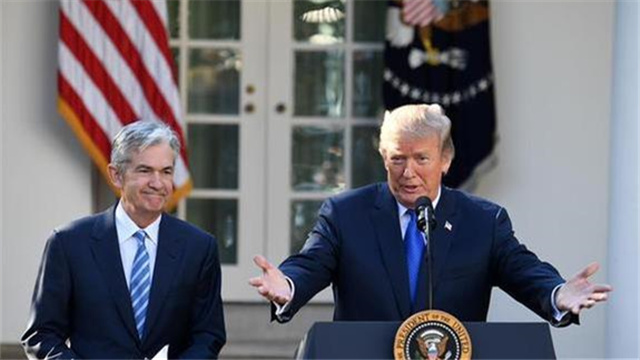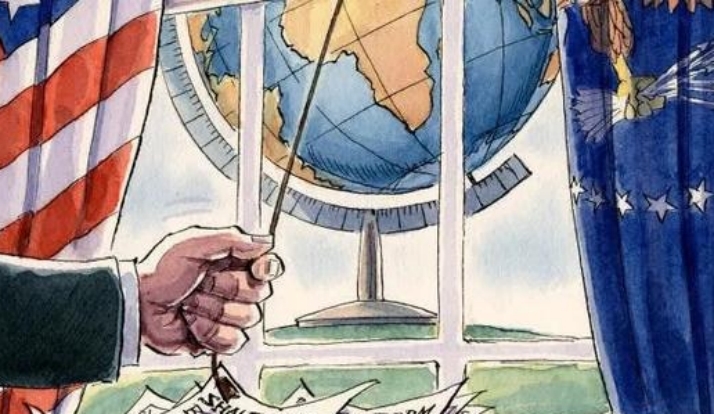
On November 18 local time, when US President Trump met with the Crown Prince of Saudi Arabia in the Oval Office, he made a high-profile announcement that he had determined the next chairperson of the Federal Reserve and "already had the answer in his mind". This statement not only intensified the suspense over the future of the current chair Powell, but also triggered a chain reaction in the global financial market. As the world's most influential central bank, the personnel changes at the Federal Reserve are becoming a key variable determining the direction of global monetary policy in 2026. Investors are beginning to reprice interest rate expectations, the credit of the US dollar and the valuation of risky assets.
The core contradiction in this candidate selection lies in the game between "political demands" and "the independence of the central bank". Trump made no secret of his dissatisfaction with Powell, saying, "I can't wait to get the current guy out right away," but failed to take action due to legal restrictions. According to the Federal Reserve Act, the term of office for the governors of the Federal Reserve is 14 years, and Powell's term as a governor will last until 2028. The president has no authority to remove him merely based on policy differences, unless it is proven that he has committed "serious malfeasance". But the Trump administration's urgent need for low interest rates has long been evident: In July this year, he publicly criticized the Federal Reserve's interest rate as "300 basis points too high", which held back the economic recovery of the United States. In September, the Federal Reserve's decision to cut interest rates by only 25 basis points drew the sole opposition from his nominee, Federal Reserve Governor Stephen Milan, who advocated for a 50 basis point rate cut.
At present, the range of candidates has been narrowed down to five, creating a clear divergence in policy preferences. The selection process led by US Treasury Secretary Janet Bessent has identified five top candidates: current Federal Reserve Governor Christopher Waller, Vice Chair for Regulation Michelle Bowman, former Federal Reserve Governor Kevin Walsh, Director of the National Economic Council of the White House Kevin Hussett, and Chief Investment Officer of BlackRock's Fixed Income division Rick Riedel. Among them, Waller, who is the most favored by the market (with a 45% chance of being elected), advocates "data-backed interest rate cuts". In July, he joined forces with Bowman to support a 25 basis point rate cut. His policy style is relatively moderate and dovish, and he is regarded as the best solution to "balance political pressure and the independence of the central bank". As a long-term economic advisor to Trump, Hasit advocates that the Federal Reserve should serve the government's economic goals and downplay inflation risks. His election may trigger aggressive interest rate cuts, raising concerns about runaway inflation. Walsh called on the Federal Reserve to coordinate debt management with the Treasury Department, which was questioned by the outside world as possibly weakening the independence of the central bank in a disguised way.
The uncertainty of personnel changes has begun to spread to the financial market. The US Treasury market was the first to react, with the yield on 10-year US Treasuries fluctuating by 15 basis points. Investors are concerned that if radical dovish figures like Hasit are elected, the overly loose policy could push up the inflation premium. The US dollar index weakened by 0.3% after Trump's remarks. The euro once touched the 1.09 mark against the US dollar, reflecting the market's subtle concerns about the credit of the US dollar. Cicc's analysis pointed out that the independence of the Federal Reserve's policy is the core support for the US dollar as a global reserve currency. If political intervention intensifies, it may shake this foundation. In the stock market, the S&P 500 index closed lower for the fourth consecutive day, with technology and growth stocks under significant pressure. However, the real estate sector, which is sensitive to interest rates, saw a slight rebound, highlighting the market's divergence on the policy path.
Judging from the process, the final candidate will be officially announced before the end of the year. Besant plans to submit a formal proposal after the Thanksgiving holiday. The nomination needs to be heard and voted on by the Senate Banking Committee, and then approved by a full Senate vote. The new chairperson will take office after Powell's term ends in May 2026. Historical data shows that the nominations for the chair of the Federal Reserve are mostly concentrated in October and November, and the Senate approval process usually takes 1 to 2 months. For instance, after Trump nominated Powell in November 2017, he officially took office in February of the following year.
For global investors, the core highlight of this leadership transition lies in the extent of the shift in monetary policy in 2026. The current "dot plot" of the Federal Reserve shows that officials expect a cumulative interest rate cut of 50 basis points at the remaining two meetings this year, with only one rate cut in 2026. However, regardless of who the final candidate is, the rate-cutting cycle is likely to continue - all three core candidates clearly support easing, with only differences in the pace: Waller may continue the "gradual rate-cutting", Hasit may push for a "one-off significant rate-cutting", and Walsh may adjust the policy under the framework of fiscal coordination. Emerging markets need to be particularly vigilant against the risk of capital outflows. If the weakening of the US dollar's credit resonates with the Federal Reserve's interest rate cuts, it may trigger exchange rate fluctuations and an increase in debt pressure.
The selection of Trump's candidate is essentially a concentrated exposure of the risk of "politicization" of global monetary policy. Since its establishment, the Federal Reserve has always aimed at the dual goals of "price stability" and "full employment", and policy independence is the cornerstone for maintaining market confidence. At present, the global inflation path is diverging and geopolitical economic uncertainties are on the rise. Whether the new chairperson can strike a balance between political pressure and professional judgment not only concerns the prospects of the US economic recovery but will also profoundly affect global capital flows, exchange rate systems and financial stability. The market is holding its breath, waiting for the final answer to be revealed before the end of the year.

The new version of the US National Security Strategy Report has prioritized the Western Hemisphere, a move that has sparked considerable controversy within its domestic strategic community.
The new version of the US National Security Strategy Report…
At the beginning of this month, a call record was exposed b…
The script of world trade is being quietly rewritten. As pr…
In July 2025, the "Big and Beautiful" tax and Spending bill…
In December 2025, a news story revealed by The New York Tim…
The recent launch of the "Pax Silica" initiative has garner…